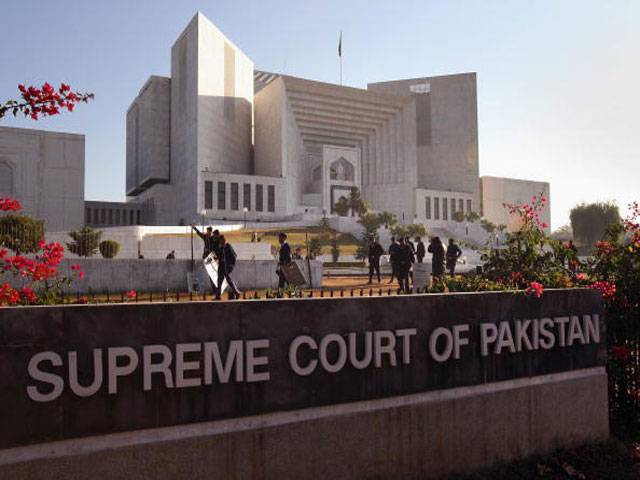ISLAMABAD - Task force working on enforced disappearance issue has proposed that there should be a law for detaining anyone for long-term legally and constitutional immunity for those who give complete detail of the missing persons.
Highly informed sources said, "The identity of the persons who give details of missing persons would not be disclosed." The task force has finalized 12 recommendations, which would be sent to Prime Minister Nawaz Sharif for consideration and after that a bill related to missing persons would be tabled in the National Assembly, hopefully next week.
The Supreme Court had passed a judgment in 35 internees, who were allegedly taken away by the army from the Superintendent lockup Malakand Division. It declared the army authorities have no authority to detain internees illegally and had directed the federal government to legislate the law to control the missing persons issue.
The Anti-Terrorism Act 1997 and the Protection of Pakistan Ordinance 2003 are silent on the missing persons issue. Enforced disappearances cases have been the nightmare for the establishment and the political governments, both Pakistan People's Party and the incumbent one.
The sources told that the PML-N government since it has come to power wanted to resolve the missing persons issue, therefore, it had constituted a task force, headed by interior secretary, and comprised civilian and military bureaucracy.
The sources said that with the disclosure of missing persons there would be lesser chances of them being killed. The task forces also suggested that compensation be given to the missing persons families. It believed that with the payment of compensation half of the cases would be closed in the courts.
Around 721 cases of enforced disappearance are pending the Supreme Court and the High Court of the country. According to that 44 case of missing persons are in the Supreme Court judicial side, 345 in Human Rights Cell of the apex court, 137 Peshawar High Court, 1 in Islamabad High Court, 11 in Lahore High Court, 165 in Sindh High Court and 18 in Balochistan High Court.
Attorney General Munir A Malik in 35 undeclared internees case on behalf of the Defence Minister had told the court that a bill to legislate the law to cover the issue of unauthorized/forced disappearances shall be put up in the current session of the National Assembly, which will continue till 20th of this month.
The Supreme Court hearing missing persons' case on 10th December 2013 had observed that except FATA/PATA Regulation relating to the Khyber Pukhtunkhawa there is no law or the authority available to any agencies including Inter Service Intelligence and Military Intelligence.
For the first time a highest court of the country passed judgment in the missing persons. The Court in its landmark judgment held; "it was the duty of Prime Minister and Chief Minister to ensure the production of these persons (35 internees) and also to ensure that all those officers who are responsible for their removal and have to account for this so far should be dealt with in accordance with law."
It further noted: "The enforced disappearance has been considered to be a crime against humanity all over the world. Moreover, Article 10 of Constitution provides direct protection from enforced disappearances. Thus the crime against humanity of enforced disappearance is clearly violative of the 1973 Constitution."
The judgment also states: "The Executive Government should also be held responsible because it is their duty to ensure that fundamental rights of the citizens are protected. If any such activity is going on, it must be stopped. If this is not done, the court may also ascertain the intention of the Executive that why it is not discouraging such practices which amount to serious crimes against humanity."
Friday, April 26, 2024
Task force proposes law on detentions
Enforced disappearances

11 outlaws arrested in district raids
April 26, 2024
SSP holds meeting to enhance traffic flow
April 26, 2024
US vows to continue strengthening ties with Pakistan
9:54 AM | April 26, 2024
KPPSC chief calls on KP Governor, presents annual report
April 26, 2024
Swati vows to run KP assembly affairs indiscriminately
April 26, 2024
Economic Challenges
April 26, 2024
No Compromise
April 26, 2024
Strength and Solidarity
April 26, 2024
Musk vs Australia
April 25, 2024
Reforming Rehab
April 25, 2024
Photon power
April 26, 2024
Justice prevails
April 26, 2024
Ending animal suffering
April 25, 2024
AI governance
April 25, 2024
AI concerns
April 25, 2024
ePaper - Nawaiwaqt
Advertisement
Nawaiwaqt Group | Copyright © 2024





